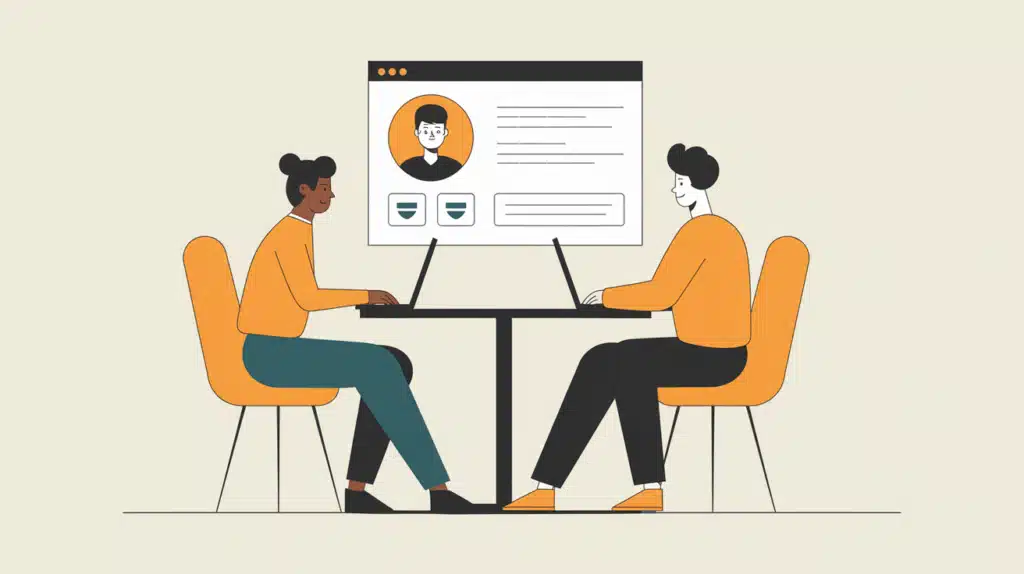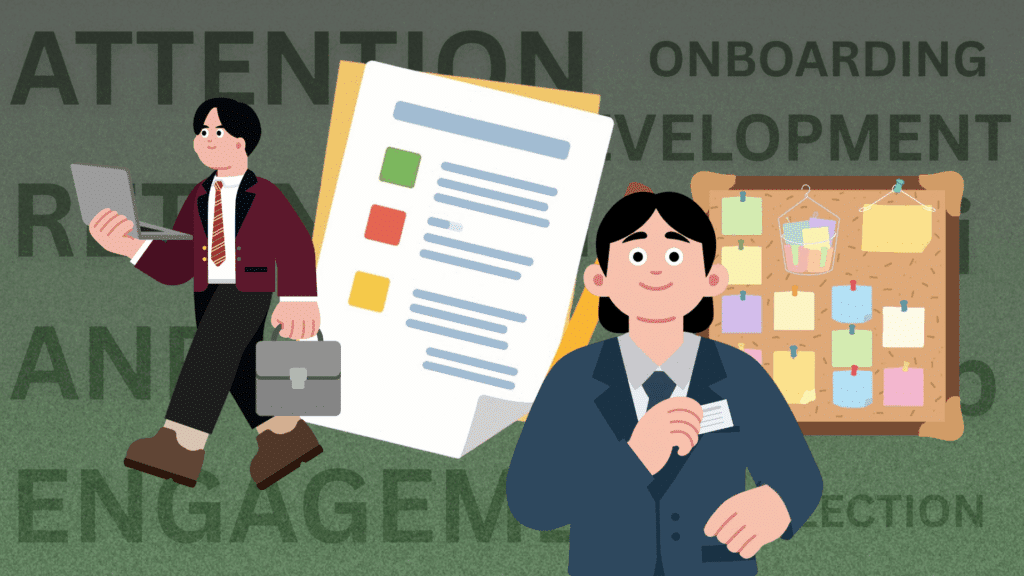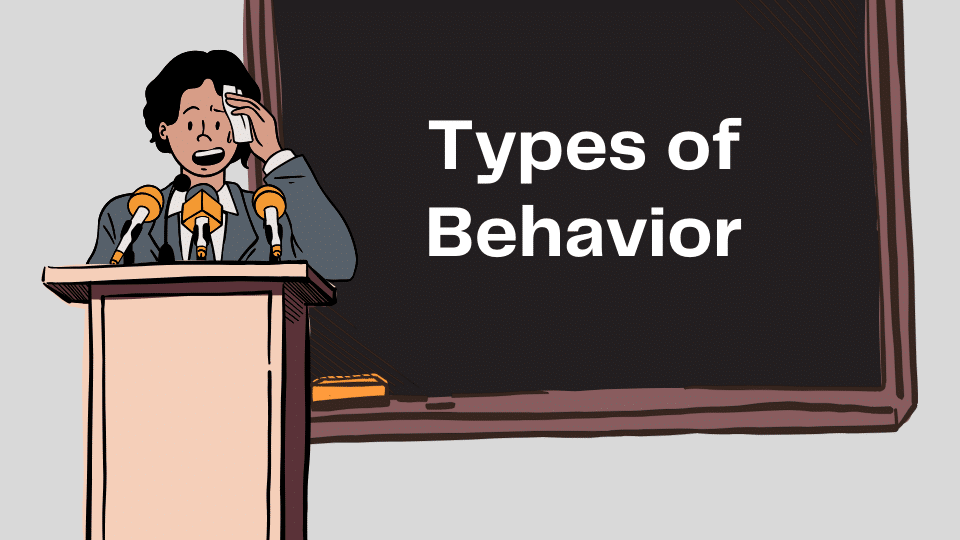Most job seekers struggle to make a strong first impression during initial interviews.
Employers receive hundreds of applications but have limited time to find the right candidate.
You understand the challenge of standing out in a competitive job market.
The screening interview is your critical opportunity to change a paper resume into a compelling professional narrative.
This guide will show you exactly how to excel in your screening interview.
You’ll learn proven strategies to communicate effectively, showcase your skills, and move confidently to the next hiring stage.
|
Related blogs on Hrsimple: |
What is a Screening Interview?
A screening interview is a short meeting, usually lasting 15 to 30 minutes, where a recruiter evaluates whether a candidate meets the basic job requirements.
It usually happens before the main interview, which focuses on deeper questions and technical skills.
The goal is simple: to determine if it’s worth moving the candidate to the next step.
Recruiters often schedule these interviews by phone or video to quickly assess communication skills, experience level, and general fit.
For example, if a company is hiring for a marketing role, the recruiter may check whether you have previous experience managing campaigns, using analytics tools, and working within a team.
If your answers align with what they need, you’ll move forward to speak with the hiring manager.
In short, the screening interview is about confirming the basics before time is spent on detailed discussions.
What are the Different Types of Screening Interviews?
Screening interviews can happen in different formats depending on the company’s hiring process.
Each type serves a unique purpose and gives recruiters a slightly different way to evaluate candidates.
| Type of Screening Interview | What It Is | Purpose | How It’s Conducted |
|---|---|---|---|
| Pre-screen Interview | A short, initial check is done before the main interview process starts. It’s often a quick chat or even a questionnaire sent online. | To confirm basic qualifications, work eligibility, and interest in the role before scheduling a live conversation. | Conducted through email, an online form, or a brief call lasting 5–10 minutes. |
| Phone Screening Interview | A verbal conversation between a recruiter and the candidate, usually the first live step after application review. | To assess communication skills, background, and alignment with the company’s expectations. | Conducted over the phone and typically lasts 15–30 minutes. |
| Virtual Screening Interview | A remote interview is conducted using digital tools like pre-recorded questions or text-based assessments. | To evaluate communication style, personality, and consistency in responses before moving to video or in-person stages. | May involve completing tasks, recorded answers, or a chatbot-like interface. |
| Video Screening Interview | A live video call between the recruiter and the candidate, replacing or complementing a phone screening. | To gauge both verbal and non-verbal communication while confirming qualifications. | Conducted via platforms like Zoom, Teams, or Google Meet, usually lasting 20–40 minutes. |
Why are Screening Interviews Important?
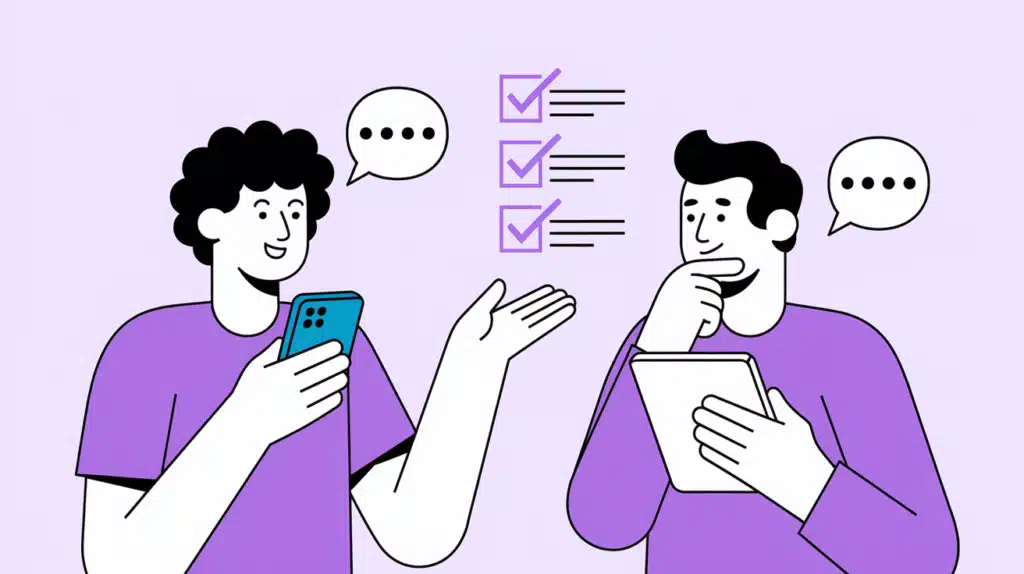
For Employers and Recruiters
From a recruiter’s perspective, screening interviews are essential for saving time and resources.
- Quick filtering: They help identify who meets minimum qualifications.
- Consistency: Recruiters can ask the same set of questions to compare candidates fairly.
- Better decision-making: They can eliminate mismatches before scheduling longer interviews.
- Improved communication: It ensures that candidates understand the role clearly before investing more effort.
For employers, this process helps maintain an organized hiring funnel, speeds up decision-making, and improves the overall quality of candidates reaching later rounds.
For Job Seekers
For candidates, the screening interview is the first opportunity to make a genuine impression beyond your resume. Here’s why it’s important:
- Personal connection: You can show your enthusiasm and personality.
- Clarification: You can ask about the role, team culture, and growth opportunities.
- Self-evaluation: It helps you decide if the position aligns with your goals.
- Progress opportunity: A strong performance can move you straight to the next round.
Even though the conversation is short, how you present yourself here can strongly influence your chances later.
When and How Do Screening Interviews Happen?
Most companies conduct screening interviews right after reviewing applications. They’re usually scheduled within a week of shortlisting candidates.
The most common formats of screening interviews are:
Phone screening interview: This is the most common type. It’s convenient for both sides and focuses on your experience, education, and availability.
Video screening interview: Many companies use tools like Zoom or Teams to get a better sense of communication style and confidence.
Recorded video screening: You receive pre-set questions to answer within a time limit. It’s used when hiring at scale.
In-person quick chat: Less common, but still used in smaller companies or walk-in events.
If you’re the candidate, prepare for this conversation like a professional interview: choose a quiet space, have your resume ready, and stay focused.
What Recruiters Are Looking For in a Screening Interview?
Recruiters aren’t looking for perfection in this stage. They want to quickly decide if you fit the role and culture. Here’s what they’re evaluating:
1. Your Qualifications
They’ll check whether your education, experience, and skills align with the job requirements. For example, if a role requires project management experience, they’ll want to hear about specific projects you’ve led.
2. Your Communication
Clear, concise, and confident communication matters more than long answers. Recruiters pay attention to how you describe your experience and whether you can explain your career story naturally.
3. Your Motivation
They want to know why you applied for the role. Are you genuinely interested in the position, or just applying everywhere? Showing clear reasons tied to your career goals makes a strong impression.
4. Your Fit
Culture fit is often as important as skills. Recruiters might ask how you handle teamwork, feedback, or deadlines to see if your approach aligns with their company values.
5. Practical Details
You’ll likely discuss availability, notice period, and salary expectations. Be honest but flexible; companies appreciate realistic expectations early on.
Screening Interview Questions and Answers
These are the most commonly asked questions in an hr screening interview. I have also provided the most suitable answers to these questions. You can also get them in PDF.
Click here to download the Screening Interview Questions and Answer PDF.
1. Can you tell me about yourself?
Aim: To see how well you summarize your background and connect it to the role.
Ideal Answer: I’m a [your profession] with [X years] of experience in [industry]. I’ve worked on [key tasks or projects], and I enjoy [specific area of expertise]. I’m interested in this position because it aligns with my skills in [area] and my goal of [career goal].
2. Why are you interested in this role?
Aim: To understand your motivation and whether you’ve researched the position.
Ideal Answer: I’m drawn to this role because it fits my experience in [field or skill] and offers growth in areas I value, like [specific aspect]. I also admire how your company focuses on [key company value or project], which matches my professional goals.
3. What do you know about our company?
Aim: To check if you took the time to learn about the company and its values.
Ideal Answer: I know your company is recognized for [specific product, service, or achievement]. I was especially interested in [specific initiative or goal], and I think my experience in [related area] could contribute to that success.
4. Why are you leaving your current job?
Aim: To see how you explain your reason for moving on and whether it’s positive.
Ideal Answer: I’ve learned a lot in my current position, but I’m ready for new challenges that let me grow and apply my skills in [specific area]. I’m looking for a company where I can contribute more strategically while continuing to develop professionally.
5. What are your biggest strengths?
Aim: To assess what you bring to the role and how it benefits the company.
Ideal Answer: My strengths include clear communication, problem-solving, and adaptability. I enjoy taking ownership of tasks and helping teams achieve results. In my last role, I improved [specific result] by streamlining [process or project].
6. What’s a weakness you’re working on?
Aim: To evaluate self-awareness and willingness to improve.
Ideal Answer: I used to take on too many tasks at once, which made it hard to focus on priorities. I’ve learned to set clearer boundaries and use task management tools to stay organized and productive.
7. How do you prioritize tasks when you have tight deadlines?
Aim: To understand your organization and time-management skills.
Ideal Answer: I start by identifying the most urgent and important tasks, then plan a timeline for each. I also communicate with my team to align priorities. This approach helps me stay calm and efficient, even under pressure.
8. What are your salary expectations?
Aim: To confirm whether your expectations fit the company’s budget.
Ideal Answer: Based on my experience and market research, I’m looking for a salary in the range of [$X–$Y]. I’m open to discussing it further once I learn more about the role’s scope and benefits.
9. When could you start if offered the job?
Aim: To check your availability and notice period.
Ideal Answer: I can start within [X weeks] after completing my notice period. If needed, I can adjust slightly to align with your onboarding schedule.
10. What type of work environment do you prefer?
Aim: To see if your working style fits the company culture.
Ideal Answer: I thrive in collaborative, goal-driven environments where people communicate openly and support each other. I also value a balance of independence and teamwork.
11. Can you describe a challenge you faced and how you handled it?
Aim: To evaluate your problem-solving and decision-making skills.
Ideal Answer:
In my last role, a project faced delays due to unclear communication. I organized short progress meetings, clarified roles, and set new deadlines. The project was completed on time, and the process became smoother for future tasks.
12. How do you handle feedback?
Aim: To assess how open you are to improvement and teamwork.
Ideal Answer: I appreciate feedback because it helps me grow. I take time to understand it and apply it right away. It’s helped me strengthen my performance and relationships with colleagues.
13. What motivates you to perform well at work?
Aim: To learn what drives your productivity and satisfaction.
Ideal Answer: I’m motivated by clear goals and seeing the impact of my work. I enjoy taking on challenges that push me to improve and contribute to a team’s success.
14. How do you stay organized when managing multiple projects?
Aim: To test your ability to handle responsibilities effectively.
Ideal Answer: I use project management tools and create daily plans to track progress. I prioritize tasks, review them each morning, and adjust timelines when needed. This system keeps me focused and prevents last-minute stress.
15. Tell me about a time you worked well in a team.
Aim: To see how you collaborate and communicate with others.
Ideal Answer: In a recent campaign, I worked with designers and analysts to improve customer engagement. We divided tasks based on strengths, stayed in sync through weekly updates, and increased our conversion rate by 20 percent.
How to Prepare for a Screening Interview?
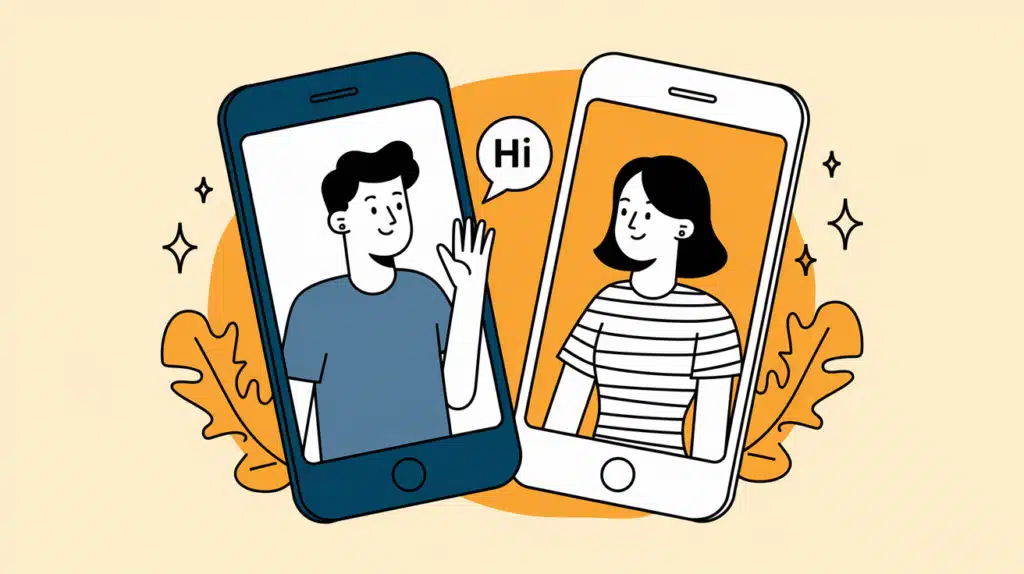
Preparing well for a screening interview helps you sound confident, focused, and genuinely interested.
Start by researching the company. Learn about their products, values, and any recent news so you can speak naturally about why you want to work there.
Go through the job description carefully. Identify the main skills they’re looking for and think of examples from your past work that prove you have them.
Review your resume and be ready to discuss your achievements clearly, especially any results you’re proud of.
Set up your interview space properly. For a phone or video call, choose a quiet area with good lighting and minimal background noise.
Check your equipment ahead of time so there are no last-minute issues.
Practice how you speak. Aim to sound calm, positive, and conversational.
Avoid sounding scripted and let your personality come through.
Prepare a few thoughtful questions to ask about the role, team, or company culture. It shows you’re engaged and serious about the opportunity.
Finally, keep a few short notes handy with key points and reminders, but don’t read directly from them.
A little preparation goes a long way toward helping you stand out during your screening interview.
Tips to Perform Well During a Screening Interview
Even a short conversation can leave a lasting impression when you combine preparation with genuine enthusiasm. These are practical ways to make your interview stand out:
-
Thank the interviewer for their time and start the conversation with a polite tone.
-
Be yourself and speak naturally to create a genuine connection.
-
Keep a positive attitude and talk respectfully about past roles or challenges.
-
Focus your answers on what matters most, since time is short.
-
Share real examples from your experience instead of giving general statements.
-
Listen carefully, stay calm, and show enthusiasm for the opportunity.
-
Before ending, thank the recruiter again and ask what the next steps will be.
After the Screening Interview, What’s Next?
Once the interview is done, the recruiter will review your responses and decide if you move to the next round.
If you move forward, you’ll be contacted for a detailed interview with the hiring manager.
If you don’t, then you may receive a polite email or no response at all. Take it as a learning opportunity.
Follow up: If you haven’t heard back within a week, send a short thank-you note and express continued interest.
Even if you don’t get this particular job, you’ve built a connection that could help in future roles with the same company.
Screening Interview vs Full Interview: Key Differences
| Aspect | Screening Interview | Full Interview |
|---|---|---|
| Purpose | Checks if you meet the basics | Evaluates your skills, values, and problem-solving approach |
| Duration | 15–30 minutes | 45–90 minutes |
| Who Leads It | Recruiter or HR team | Hiring manager or department head |
| Focus | General fit and motivation | Technical and behavioral depth |
| Format | Phone, video, or quick chat | Multi-stage or task-based |
| Outcome | Move forward or not | Final hiring decision |
The screening stage filters candidates efficiently, while the full interview dives deeper to confirm who is the best fit.
The Bottom Line
A screening interview may be short, but it carries real weight in the hiring process.
It’s the first step where employers get to know who you are beyond your resume and decide if you should move forward.
For candidates, it’s a moment to show readiness, clarity, and enthusiasm for the role.
For recruiters, it’s an efficient way to spot potential and maintain a smooth hiring flow.
When both sides come prepared and communicate openly, this simple conversation becomes the foundation of a positive working relationship.
Every successful career move often begins with a strong and confident first interview.

